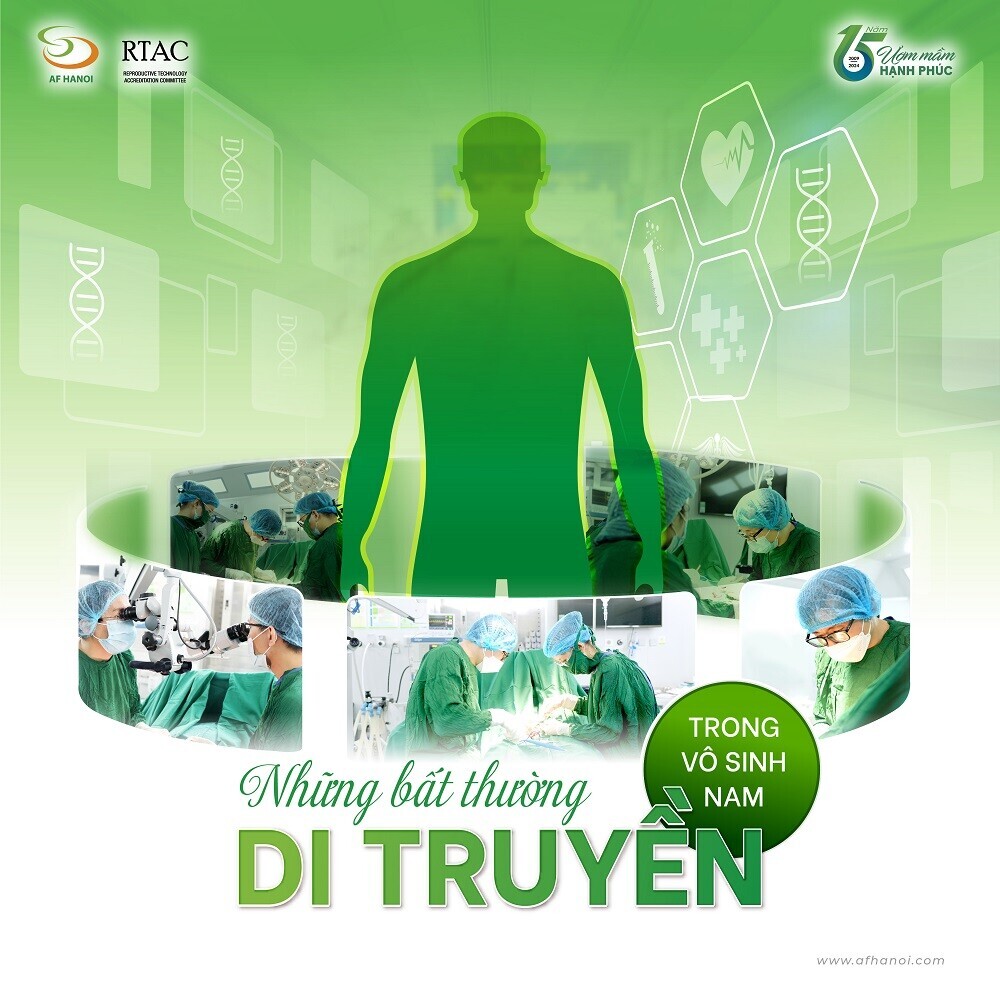
Genetic Abnormalities in Male Infertility
Infertility has become a global issue, with an increasing rate in both men and women. This issue, especially in men, cannot be overlooked.
According to a report by the World Health Organization (WHO), 1 in 6 people worldwide experiences infertility, with 50% of the causes attributed to male factors, ranging from sperm quality issues to genetic abnormalities.
- Genetic Abnormalities Causing Male Infertility
- Chromosomal Abnormalities (Klinefelter Syndrome)
Klinefelter Syndrome (47,XXY) is the most common chromosomal abnormality in infertile men, occurring in approximately 1 in 500 men. This syndrome leads to reduced testosterone production, testicular dysfunction, and a lack of sperm production.
- Chromosomal Structural Abnormalities
- Y Chromosome Microdeletion:
- This is commonly found in the AZF region of the Y chromosome, leading to sperm deficiency or azoospermia (no sperm production). It is a frequent cause of male infertility due to the absence of sperm.
- Chromosomal Translocation: This occurs when a portion of a chromosome is rearranged or relocated, disrupting the cell division process in the testes, which can affect sperm production.
- Single Gene Disorders (Kallmann Syndrome)
- Kallmann Syndrome is a rare single-gene disorder that causes male infertility due to a deficiency in gonadotropin hormones. It results in impaired sexual function, loss of the sense of smell, delayed puberty, and disrupted testicular development, preventing sperm production.
To accurately diagnose genetic factors related to male infertility, modern medical techniques such as chromosome analysis, Y chromosome microdeletion testing, gene mutation testing, and testicular biopsy are necessary.
Genetic abnormalities are among the most complex causes of male infertility. With advancements in modern medicine, early detection and intervention of genetic factors not only offer hope for couples struggling with infertility but also ensure the health of future generations. It is important to proactively seek genetic testing and counseling for timely diagnosis and treatment support.

